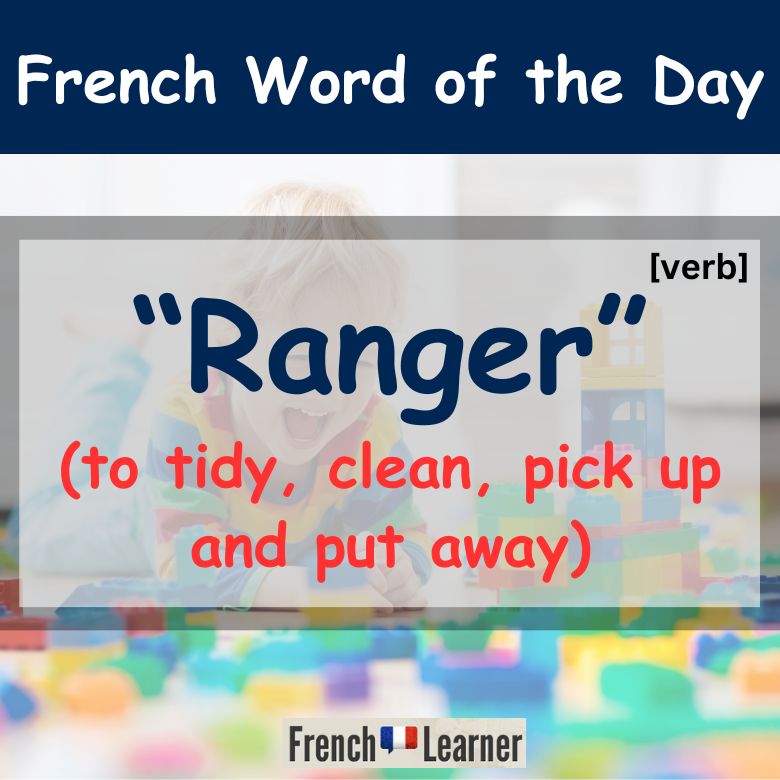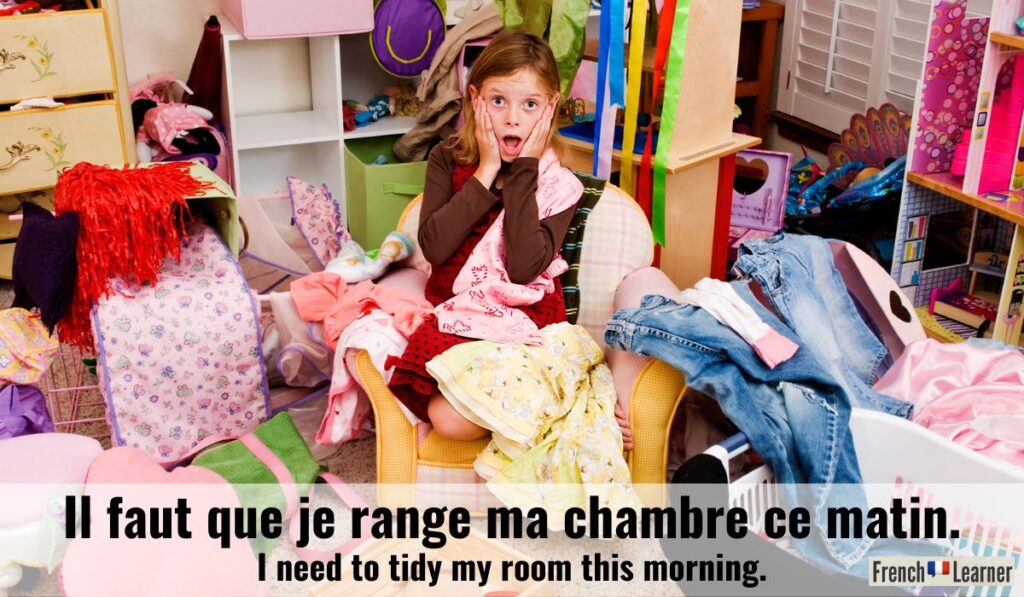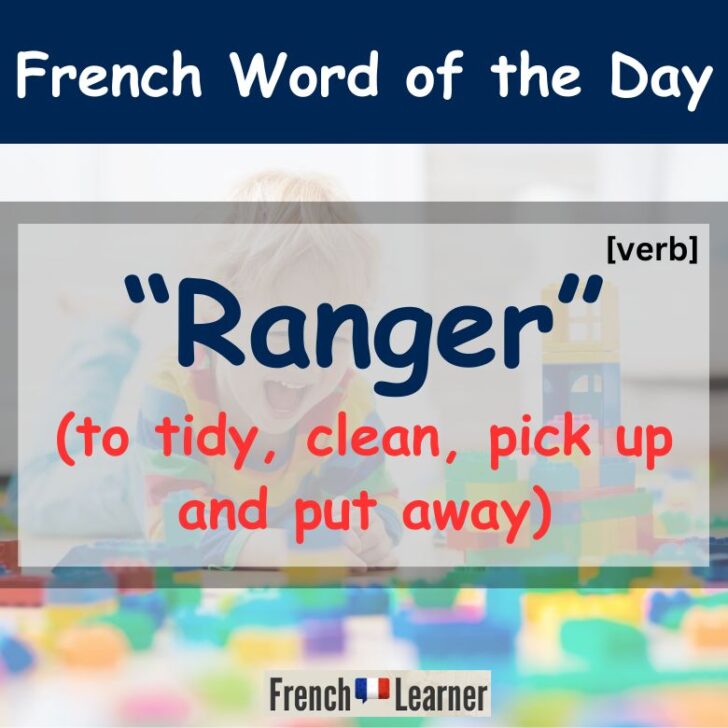Today’s lesson will cover yet another French verb that has multiple meanings: Ranger. Translations of ranger include to tidy, clean, pick up and put away. For example “Range ta chambre !” (Clean your room!). Let jump right into the lesson!
ranger
to tidy, clean, put away

Ranger Meaning & Translation
Ranger origin and conjugation
The French verb ranger is related to the noun rang (row, rank). Rang comes from the old French word renc, which in turn comes from hring (circle, ring) in Lorraine Franconian.
Besides a slight irregularity in the first-person plural (nous) form, ranger is a regular ER verb. This means that its endings are the same as all other regular ER verbs when conjugated in the present tense. In the nous form, an extra -e is added after the -g.
Je range I tidy (clean, pick up or put away)
Tu ranges You tidy (informal, singular)
Il, elle, on range He, she, one tidies
Nous rangeons We tidy
Vous rangez You tidy (formal, plural)
Ils, elles rangent They tidy
Example sentences with ranger
To tidy, clean
In our first example sentence, we’ve translated ranger as “to tidy”. However, as noted above, the translation “to clean” would work too.
Il faut que je range ma chambre ce matin.
I need to tidy my room this morning.
To put away
In the next three example sentences, the underlying translation of ranger is “to put away”. In our first example sentence, the translation “The kids pick up thier toys” would also work.
Les enfants rangent tous leurs jouets.
The kids put their toys away.
For this next example, we’ve taken the liberty to translate ranger to “to put back”.
Papa range les assiettes dans le placard.
Dad puts the plates back in the cupboard.
For this last example, the translation “to put back” would also work: “I put the pens back in the drawer”.
Je range les stylos dans le tiroir.
I put my the pens in the drawer.
Conclusion
Et voilà ! You now know how to use the verb ranger in French! We now invite you to have a look at two more posts on verbs of interest: quitter (to leave) and bosser (to work, to work hard).

French lessons by David Issokson

